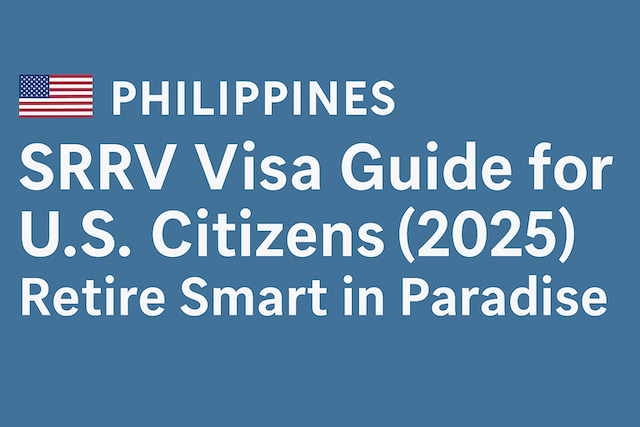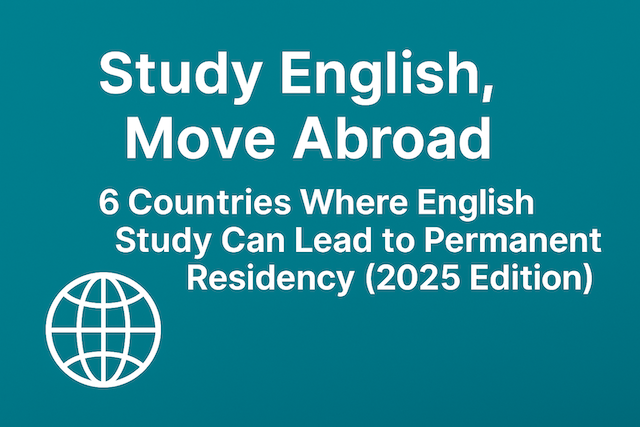Top 5 Nationalities of Foreign Men Married to Filipina Women (2025 Edition)
Contents
Top 5 Nationalities of Foreign Men Married to Filipina Women (2025 Edition)
Introduction :
In the past few decades, international marriages involving Filipina women and foreign men have significantly increased. Known for their warmth, strong family values, and resilience, Filipina women have become beloved life partners to many foreign men around the world. But have you ever wondered which nationalities are most commonly married to Filipinas?
According to recent data from the Commission on Filipinos Overseas (CFO) and civil registry records, five countries stand out as the most frequent sources of foreign husbands for Filipina women. These marriages are often the result of mutual admiration, cultural exchange, and, increasingly, long-distance communication made possible by online platforms.
In this article, we’ll explore the Top 5 nationalities of foreign men who marry Filipinas, along with insights into the cultural, social, and personal reasons behind these unions. Whether you’re interested in the statistics or the stories behind these cross-cultural marriages, this guide offers a well-rounded view of one of the Philippines’ unique modern trends in relationships.
Let’s dive into the top-ranking nationalities and what makes them connect so strongly with Filipina women.
🇺🇸 1. United States
The United States has long held the top spot in the ranking of foreign men who marry Filipina women—and for good reason. The bond between the Philippines and the United States is deeply rooted in shared history, close political and economic relations, and strong cultural connections. These ties have paved the way for meaningful relationships between American men and Filipina women for more than a century.
Historically, this trend can be traced back to the early 20th century when American soldiers were stationed in the Philippines during and after World War II. Many of these servicemen formed close relationships with local women, leading to marriages and migration to the United States. Over the decades, these early cases laid the groundwork for what has now become a widely accepted and even celebrated pattern of international marriage.
Today, the trend continues not just because of historical circumstances, but because of enduring compatibility between the two cultures. English is widely spoken in the Philippines, making communication between Filipina women and American men much smoother compared to relationships with partners from other non-English-speaking countries. This shared language removes a major barrier and allows couples to connect emotionally, intellectually, and socially without the constant need for translation or clarification.
American men often express admiration for Filipinas’ deep family values, their nurturing and caring personalities, and their dedication to long-term relationships. In contrast to more individualistic approaches to love and partnership seen in some Western cultures, many Filipinas embrace a more traditional and loyal mindset when it comes to marriage. This balance—where one partner seeks emotional warmth and family-oriented traits, and the other offers stability and independence—often leads to strong, mutually supportive relationships.
Additionally, the presence of large and well-established Filipino communities in cities such as Los Angeles, San Francisco, Las Vegas, and New York provides a supportive environment for Filipina women adjusting to life in the U.S. These diaspora communities offer emotional support, cultural familiarity, and social networks that ease the transition and help couples thrive. Churches, Filipino restaurants, community centers, and online groups act as vital lifelines for both partners, fostering a sense of belonging and cultural continuity.
Technology has also played a major role in strengthening this trend. Online dating platforms and social media have made it easier for Filipina women and American men to meet, build trust, and fall in love—despite the distance. Many long-distance relationships blossom into full-fledged marriages thanks to frequent video calls, message exchanges, and eventual in-person visits.
In terms of immigration and visa policies, the U.S. continues to offer options like the K-1 Fiancé(e) Visa, which allows Filipina women to legally move to the U.S. to marry their American partners. Though the process can be time-consuming and paperwork-heavy, the legal infrastructure is well-defined and supportive of international couples.
In summary, the United States remains the leading country where foreign men marry Filipinas due to a powerful blend of historical ties, shared language, compatible values, and community support. For many Filipina women, marrying an American is not just a romantic choice—it represents the beginning of a new life filled with opportunity, partnership, and mutual respect.
🇯🇵 2. Japan
Japan ranks among the top countries where foreign men marry Filipina women, and this trend has shown remarkable stability over the past few decades. The dynamic between Japanese men and Filipina women is unique, shaped by cultural nuances, economic opportunities, and shared values around family and tradition.
One of the driving factors behind this trend is the significant number of Filipina women who have worked in Japan since the 1980s and 1990s, particularly as entertainers, caregivers, nurses, or in domestic roles. These job opportunities often led to long-term stays in Japan, during which many Filipinas met their future Japanese husbands. Over time, relationships that began professionally or socially matured into deep personal connections.
Filipina women are often admired in Japan for their warm personalities, resilience, and commitment to family. These traits resonate with many Japanese men who seek reliable, caring life partners. Additionally, the traditional family-oriented mindset of Filipinas aligns closely with the values of Japanese society, where loyalty, harmony, and dedication to domestic life are highly appreciated.
Communication between Japanese men and Filipina women is not always easy in the beginning, especially if one or both are not fluent in English or Japanese. However, many couples overcome this barrier through mutual effort and language learning. In fact, many Filipinas who marry Japanese men go on to master conversational Japanese, often becoming highly integrated into their local communities.
Another major factor behind the trend is the supportive immigration policies for spouses in Japan. Once married, Filipina women are typically eligible for a Spouse Visa, which allows them to live and work in Japan with fewer restrictions. This legal clarity and long-term stability appeal to many Filipinas, especially those seeking a peaceful and structured life in a developed country.
Japan also offers excellent infrastructure, safety, and healthcare—qualities that many Filipinas find attractive, especially when starting a family. Raising children in Japan can offer educational and healthcare benefits that are not always available in other countries, adding another layer of motivation for Filipinas considering marriage to Japanese nationals.
The role of matchmaking agencies and community networks cannot be understated. There are numerous marriage agencies in both the Philippines and Japan specifically facilitating introductions between Filipina women and Japanese men. Additionally, local Filipino communities in Japan—particularly in places like Aichi, Saitama, and Tokyo—create a welcoming environment that helps newcomers adapt. These communities offer cultural familiarity and emotional support, making the transition smoother for Filipina spouses.
It’s also worth noting that many Filipina-Japanese couples succeed in creating bicultural families where children grow up with dual identities, often fluent in both Japanese and English or Filipino. These children symbolize the harmony and resilience of cross-cultural unions.
In conclusion, Japan remains a strong and consistent country where many Filipina women find not just romantic partners, but also lasting homes. The cultural compatibility, supportive legal environment, and shared family values make Japan an ideal destination for Filipinas seeking stable, meaningful marriages with Japanese men.
🇰🇷 3. South Korea
South Korea ranks high among the countries where Filipina women marry foreign men—and it’s not just about K-pop or K-dramas. Over the past two decades, South Korea has seen a steady increase in international marriages, particularly in rural areas, where local men often face challenges finding spouses. Filipinas, known for their adaptability, warmth, and family values, have become one of the most common nationalities among foreign wives in Korea.
As of 2025, government data indicates that thousands of Filipina women are living in South Korea as the wives of Korean nationals. While initially these marriages were often arranged through agencies, recent years have seen a shift toward more organic relationships—built through work, study, mutual friends, or online communities. South Korea’s growing openness to multicultural families is creating a more welcoming environment for such unions.
Cultural curiosity plays a significant role in these relationships. Many Filipinas are interested in Korean culture, language, and cuisine—even before meeting their future spouses. At the same time, Korean men often admire Filipinas for their kindness, loyalty, and strong sense of family. These mutual appreciations serve as a solid foundation for lasting partnerships.
Language and cultural differences can be a challenge, but many Filipina spouses make a strong effort to learn Korean. They attend language classes, integrate into local communities, and often become active participants in neighborhood life. South Korea’s Ministry of Gender Equality and Family offers programs specifically aimed at helping foreign spouses adapt, including language training and cultural education. This support structure helps bridge the gap and ensures a smoother transition into Korean society.
Korean husbands, on their part, are increasingly aware of the importance of supporting their Filipina partners emotionally and socially. In successful marriages, there is a shared willingness to learn from each other and to build a multicultural household where both Korean and Filipino customs are respected. Celebrating Chuseok and Lunar New Year alongside Filipino fiestas like Christmas and New Year makes the household vibrant and inclusive.
Economically, South Korea offers stability. Many Filipina wives enjoy a comfortable standard of living and raise their children in a highly developed education system. Children of Korean-Filipino couples, often referred to as “Kosians,” are increasingly celebrated as symbols of Korea’s multicultural future.
However, it’s important to acknowledge that challenges still exist. Social integration can be difficult, particularly in conservative rural areas. Some Filipinas may face prejudice or loneliness. Yet, support networks—both online and offline—have grown significantly. Filipino communities, embassy services, and multicultural centers offer assistance, cultural events, and even legal aid.
Interestingly, many Filipinas help their husbands run small businesses, farms, or shops—bringing not just companionship but also entrepreneurial energy. Others pursue careers in education, nursing, or community work. Their contributions are gradually changing perceptions and promoting greater acceptance of multicultural families in Korea.
In conclusion, South Korea offers a unique blend of tradition and modernity, challenge and opportunity. For Filipina women looking to build a life abroad with a loving partner, South Korea continues to be a meaningful and increasingly supportive destination.
🇦🇺 4. Australia
Australia holds a prominent place among the top countries where Filipina women marry foreign men. The bond between Australian men and Filipina women has grown steadily over the years, driven by compatible values, favorable immigration systems, and a strong demand for committed, family-oriented partnerships.
One of the primary reasons for this trend is the cultural openness of Australian society. Australia is widely recognized as a multicultural country that values diversity, and Filipina women often find themselves welcomed with warmth and respect. Many Australian men appreciate the affectionate, nurturing, and loyal nature of Filipinas—qualities that align well with the Australian ideal of a down-to-earth, supportive partner.
Many relationships between Australians and Filipinas begin through online dating platforms or personal introductions facilitated by Filipino-Australian community networks. In fact, Australia is home to one of the largest Filipino populations outside the Philippines, with over 400,000 Filipinos living across cities such as Sydney, Melbourne, Brisbane, and Perth. These vibrant communities help Filipina newcomers feel at home and often play a key role in supporting cross-cultural relationships and marriages.
From a legal and immigration standpoint, Australia provides a relatively straightforward pathway for Filipino spouses. The Partner Visa program allows a Filipina fiancée or wife to live and work in Australia, with the eventual possibility of permanent residency and citizenship. This legal security is a major factor for many Filipinas, who seek not only a loving relationship but also long-term stability for themselves and their future children.
Moreover, Australian men are known for their egalitarian approach to relationships. While gender roles may still play a part in some households, many Australians prefer partnerships based on mutual respect and shared responsibilities. Filipina women often adapt well to this dynamic, especially those who are independent, career-oriented, or have already worked abroad before marriage.
Language is another advantage in these relationships. English is the official language of both countries, which reduces communication barriers and enhances emotional bonding. This shared language facilitates integration into Australian society, access to employment opportunities, and education for any children born into the marriage.
In many cases, Filipina wives become active contributors to their communities. Some pursue careers in healthcare, education, hospitality, or small business. Others focus on raising families and maintaining strong cultural ties to the Philippines, often involving their Australian husbands in Filipino traditions, food, and festivals.
It’s also worth noting that many Australians who visit or work in Southeast Asia develop a strong affection for the region—and the Philippines in particular. These men often return home with positive views of Filipino culture and people, making them more receptive to the idea of marriage with a Filipina.
Overall, Australia offers a welcoming and stable environment where cross-cultural marriages thrive. For Filipina women, marrying an Australian often means entering into a relationship that values kindness, openness, and long-term commitment—supported by a legal system that facilitates successful integration and family life.
🇨🇦 5. Canada
Canada has become an increasingly popular destination for Filipina women marrying foreign men, and it’s easy to see why. Known for its inclusivity, progressive immigration policies, and high standard of living, Canada offers an ideal environment for cross-cultural relationships to flourish. Filipino-Canadian unions are marked by shared values, mutual respect, and strong community support.
One of the most important factors behind the success of Filipina-Canadian marriages is Canada’s multicultural ethos. The country prides itself on welcoming immigrants and celebrating cultural diversity, and Filipinas often feel accepted and embraced by both society and their partners’ families. In fact, as of 2025, over 950,000 Filipinos are living in Canada—making them one of the largest immigrant groups in the nation. These communities are well-established and provide essential support networks for newly arrived spouses.
Canadian men are often drawn to Filipinas for their warmth, strong family values, and resilience. Many Canadians seek meaningful relationships grounded in emotional connection and partnership. Filipina women, in turn, appreciate the sincerity, calm demeanor, and respectful nature of Canadian men. This compatibility often leads to long-term, stable marriages.
The Canadian immigration system also facilitates these relationships through various spousal sponsorship programs. A Canadian citizen or permanent resident can sponsor their Filipina partner to immigrate to Canada under the Family Class category. Once approved, the spouse receives permanent resident status, access to healthcare, and the ability to work legally in Canada. This legal pathway provides Filipina wives with a strong foundation for building a new life.
English and French are Canada’s official languages, and most Filipinas already have functional English skills due to their education or work experience. This linguistic advantage makes it easier to integrate into Canadian society and adapt to new environments. Some Filipinas also choose to learn French, especially if they settle in bilingual regions like Quebec or Ottawa.
Canada’s lifestyle and values also align with many Filipina women’s goals for the future. Whether it’s pursuing further education, raising children in a safe and inclusive environment, or building a family home, Canada offers the resources and social services to support these dreams. Many Filipina wives thrive in Canada, contributing actively to their households, communities, and careers.
Cultural adaptation can be a two-way process, and Canadian husbands often embrace Filipino culture with enthusiasm. They participate in Filipino holidays, enjoy traditional dishes like adobo and sinigang, and support their wives in maintaining ties to their homeland. This mutual cultural exchange enriches family life and deepens the marital bond.
Moreover, many Filipina women in Canada connect with others through Filipino churches, social clubs, and community centers. These networks help newcomers overcome challenges such as homesickness, seasonal climate changes, and professional transitions.
In essence, Canada provides not only a legal and financial framework for a stable marriage but also a cultural environment that encourages integration, mutual respect, and shared success. Filipina-Canadian marriages often blossom into strong, resilient unions built on love, trust, and opportunity.
Conclusion: Love Without Borders—A Global Trend Rooted in Culture and Connection
The rising number of international marriages between Filipina women and foreign men tells a compelling story—not just about love, but also about shared values, cultural curiosity, and global migration trends. From the United States to South Korea, and from Japan to Australia and the United Kingdom, men from around the world continue to be drawn to the unique warmth, resilience, and deep family values that many Filipinas embody.
While each nationality brings its own cultural flavor to these cross-cultural unions, the success of these relationships often hinges on mutual respect, emotional connection, and the ability to navigate differences with open hearts and minds. Whether formed through work, travel, online platforms, or serendipitous meetings, these relationships are redefining what it means to build a global family.
At the same time, it’s essential to acknowledge both the opportunities and the challenges that come with such marriages—especially in terms of integration, societal acceptance, and legal systems. Fortunately, support systems, awareness programs, and multicultural communities are increasingly stepping up to provide the resources and solidarity needed to thrive.
As we look ahead to 2025 and beyond, the trend of foreign men marrying Filipina women is expected to grow, driven by globalization, increased connectivity, and a broader appreciation for cultural diversity. These marriages are not only about romance—they also represent a bridge between nations, a celebration of unity in diversity, and a powerful reminder that love truly knows no borders.







